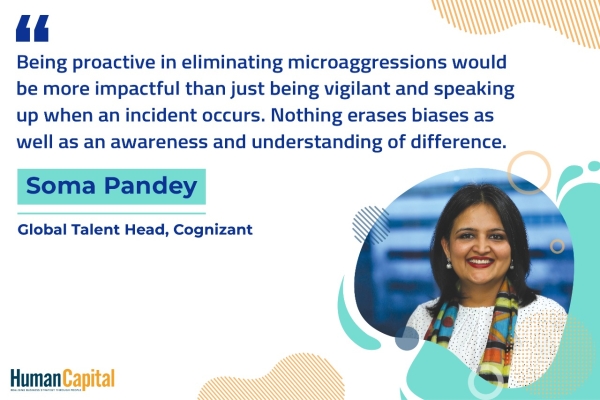The ability to be able to stand on one's own feet after a person undergoes a bout of turbulence can be termed resilience. Simply put, resilience is the ability to get back up after a spell of adversity. It is common to be resilient and it is derived from the basic human ability to adapt to new situations. Resiliency is also defined as the ability to go through difficulties and regain a satisfactory quality of life. The American Psychological Association has examined this personality trait very closely since the 9/11 terror attacks. It stated that it is the ability by individuals to effectively cope with difficulties that might otherwise lead to anxiety, depression, withdrawal, physical symptoms or poor achievement.
'Resiliency is the catalyst that makes ordinary people do extraordinary things', says George Everly, Executive Director, Resiliency Science Institute and an Associate Professor at the School of Medicine, John Hopkins University. Following a research spanning two decades, he has inferred that resilient individuals have some characteristics in common- they are optimistic, innovative, decisive, trustworthy, willing to accept responsibility and able to communicate effectively. Further, these individuals also manage to avoid the following pitfalls-
● Acting Impulsively - Resilient individuals first assess what needs to be done
● Delaying Action Excessively - Resilient individuals do not hesitate to act when appropriate
● Compromising their integrity - Resilient individuals resist the temptation to take short cuts
● Ignoring their Health - Resilient individuals do not appear exhausted, worn out and demoralized
(Source- www.umbc.edu/trainctr)
The Significance of Resilience
Wellbeing and resilience are skills that can be learnt or cultivated. Together these skills set are so effective that the world leaders are beginning to recognize their significance. Although, it is touted as an essential capability that enables individuals to bounce back from setbacks, the truth is that resilience is hard. It requirescourage to confront painful realities, faith that there will be a solution when one is not immediately evident, and, tenacity to linger on despite a nagging gut feeling that the situation is hopeless.
Steven Snyder, the author of Leadership and the Art of Struggle, spoke to various industry leaders with extraordinary abilities who had faced an array of challenges, setbacks and adversities. After listening to their stories, he realized that most of these executives had struggled with their resilience as well. Each of these leaders he interviewed had been thrown off balance, in one way or the other. If left unchecked, this state of imbalance can undermine a leader's functioning at a crucial time, worsening an already bad situation, and almost eliminating the ability to act with resilience. When faced with a difficult or a challenging situation, it is natural to go off balance. Therefore, the most important step is to recognize and acknowledge that you are off balance. Once you reach this awareness, you can consciously take action to regain your foothold by engaging in a set of grounding and centring practices, allowing you to channel your energy more adaptively and constructively.
In "Building Resilience," Martin Seligman, Professor of Psychology at the University of Pennsylvania argues that businesses can help employees become more resilient. Drawing insights from an U.S. Army programme that helps soldiers bounce back after trauma, Penn's Resiliency Program teaches students to think positively about setbacks so that they do not fall in a state of helplessness. To help people recognize their natural fortitude, psychologist Mark Katz, PhD-who runs a programme called the "Resilience through the Lifespan Project", asks them to identify setbacks and turning points experienced by them over time. Then he has participants consider the factors that helped them succeed in each instance. Maybe it was a mentor, an energizing hobby, a tightknit group of friends, or sheer determination. The exercise, Katz explains, prompts people to gain confidence in their inherent strengths, and attain insights into conditions that allowed them to rise above the past challenges in their lives.
Traits of Resilience
Researchers across different disciplines, and studying human behaviour at different life stages, have identified traits consistent among individuals demonstrating resilience. These individuals have not been spared adverse circumstances or traumas in life and have demonstrated certain attributes or beliefs that lend themselves to positive and timely recovery. How resilience is developed is based on the way individuals develop and process experience. Therefore, the first of these attributes includes the embodiment of a strong positive attitude, along with a sense of optimism, and an increased sense of hopefulness.
When highly resilient individuals become traumatized or mired in a stressful situation, they seek a new meaning and purpose in their lives. They do not remain stagnant or fixed to the root of their negative experience. Remaining hopeful and not defining the total essence of life rooted in the trauma, allows for a quicker recovery and reframing back into more positive thinking. These people view traumatic events or stressors as isolated aspects and experience the quality of life that is grounded in meaning. The ultimate goal desired then gets translated to "decrease of despair or hopelessness" and "increase in hopefulness and meaning making" in their lives.
Victor Frankl, Psychiatrist and the founder of Logo therapy, in his book "Man's Search for Meaning ", gives the first-hand account of his ordeal as a prisoner in a concentration camp during World War II. Frankl, details his ability to re-establish positivity and meaning found through a life of servitude to others, after surviving the atrocities experienced. He explains that in spite of uncontrollable events and challenges in life, hope does not subside so long as the freedom of choice on how to respond remains in the forefront of the mind.
Self-Efficacy and Perseverence
These are attributes supporting resilience and combine the desire by the individuals to persevere and cultivate a strong sense of self efficacy. Self- Efficacy is defined as the belief in one's capabilities to achieve a goal or an outcome. It is ground in the belief system that quitting is not an option and that when there is a desire to succeed, an opportunity can be created. Self - Efficacy is instinctual in some individuals and it can be cultivated over time through self-reflection and internal enquiry. It is evident in children when the desire to succeed supersedes the negative feeling associated with failing.
Another trait evidenced by individuals with resilience is the ability to cultivate and sustain supportive relationships with those around them. These relationships become instrumental in the time of crisis. For some, it is the presence and availability of a caring professional, family member or friend to listen and help that supports the building of self-efficacy and reduction of stress.
Humility and noble purpose
Complacency, Arrogance and Greed crowd out resilience whereas humility and noble purpose fuel it. Resilience draws from the strength of character, from a core set of values that motivate efforts to overcome setbacks and resume walking the path to success. It involves self-control and willingness to acknowledge one's own role in defeat. Resilience also thrives on a sense of community - the desire to pick oneself up because of an obligation to others and because of support from others who want the same thing.
Resilience is manifested in actions - a new contribution, a small win, a goal that takes attention off of the past and creates excitement about the future. Potential troubles lurk around every corner, whether they stem from unexpected environmental jolts or individual flaws and mistakes. Whatever the source, what matters is how we deal with them. When surprises are the new normal, resilience is the new skill.
.jpg)
Does your organisation support you in maintaining work-life boundaries?
Trending
-
SBI General Insurance Launches Digital Health Campaign
-
CredR Rolls Out 'Life Happens' Leave For Its Employees
-
Meesho Announces 30-Week Gender-Neutral Parental Leave Policy
-
Microsoft Unveils Tech Resilience Curriculum To Foster An Inclusive Future
-
60% Indian Professionals Looking For Job Change Due To COVID: Survey
-
SpringPeople And Siemens Collaborate For Digital Transformation Push
-
86% Professionals Believe Hybrid Work Is Essential For Work Life Balance: Report
-
Almost 1 In Every 3 People's Personal Life Affected Due To Work Stress
-
Meesho Rolls Out Reset And Recharge Policy For Employees
-
80% Of Talent Leaders & Academics Say Pandemic Changed Skill Needs For Youth: Report
-
Hero Electric Rolls Out 'Hero Care' Program For Employees
-
Human Capital In Collaboration With ASSOCHAM Hosts Virtual Conference
-
IKEA India, Tata STRIVE Collaborate To Create Employability And Entrepreneurship Opportunities
-
SAP India, Microsoft Launch Tech Skilling Program for Young Women
-
DXC Technology, NASSCOM Collaborate For Employability Skills Program
-
Lenskart To Hire Over 2000 Employees Across India By 2022
-
Mindtree Launches Learn-and-Earn Program
-
Tata AIA Extends 'Raksha Ka Teeka' To Its Employees
-
Swadesh Behera Is The New CPO Of Titan
-
NetConnect Global Plans To Recruit 5000 Tech Professionals In India
-
Hubhopper Plans To Hire 60% Of Indian Podcasters By 2022
-
Corporate India Needs More Women In Leadership Roles: Report
-
Aon to Invest $30 Million and Create 10,000 Apprenticeships by 2030
-
Tech Mahindra Launches ‘Gift a Career’ Initiative for Upskilling of Youth
-
40% Women Prefer Flexible Working Options in Post-COVID World: Survey
-
3 out of 4 companies believe they can effectively hire employees virtually: Report
-
Vodafone , CGI and NASSCOM Foundation launch digital skills platform
-
Odisha: Bank, postal employees to deliver cash for elderly, differently-abled persons
-
Skill India launches AI-based digital platform for "Skilled Workforce"
-
Hiring activity declines 6.73% in first quarter: Survey
-
70% startups impacted by COVID-19 pandemic
-
Bajaj Allianz Life ropes in Santanu Banerjee as CHRO
-
Over 70 Percent MSMEs look at cutting jobs to sustain businesses
-
93 Per Cent employees stressed about returning to office post-lockdown
-
Johnson & Johnson India announces family benefits for same gender partners
-
Indian firms turning friendly towards working mothers
-
Welspun India names Rajendra Mehta as new CHRO
-
Wipro partners with NASSCOM to launch Future Skills platform



Human Capital is niche media organisation for HR and Corporate. Our aim is to create an outstanding user experience for all our clients, readers, employers and employees through inspiring, industry-leading content pieces in the form of case studies, analysis, expert reports, authored articles and blogs. We cover topics such as talent acquisition, learning and development, diversity and inclusion, leadership, compensation, recruitment and many more.
Subscribe Now












































Comment